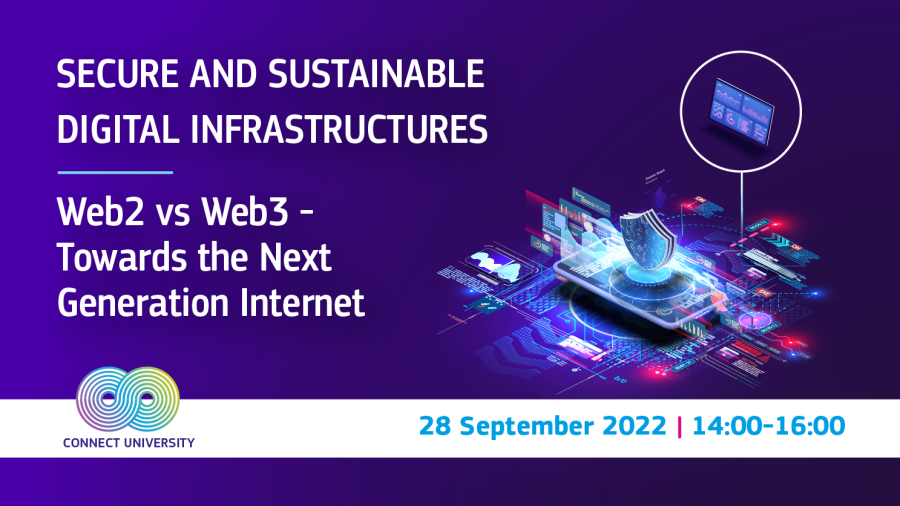The internet has been the greatest disruption of our times. In the past 50 years, it has become the essential infrastructure supporting our digital lives, revolutionising businesses, public and private spheres and connecting its users to both digital and physical worlds.
To master its future, Europe needs to take an active role in defining the evolution of the Internet. We will thus explore how the EU is contributing to building the future internet as an “internet of humans”, in line with European rights and principles, and to delivering internet technologies that enable better control of our digital life, respects our privacy, permits better sharing of data, based on users’ preferences, and enables better socio-economic impact based on improved trust.
The course will then dive in on the transition from Web2 to Web3, in particular how we might move from the status quo of Web2, where we have central gatekeepers controlling content, towards a more decentralized web, one in which content will lay more in the hands of individuals..
As background, in Web1 we had only read - you go on a website and just download (read) information.
In Web2, where we currently are in theory, we moved towards Read & Write - uploading our data to platforms.
Next, we will be moving towards Web3, where we will also have Own & Participate. This would allow us to start owning back our content (data), and be rewarded by the system for it, actively changing how we participate as users. We can create, manage, and share self-owned information that under a trust framework can substitute information found in paper credentials, such as a university diplomas or identification documents.
Blockchain, which currently set our next base, is moving to peer to peer - where all computers have the same level of information and privacy/transparency is preserved via cryptography in a way that makes it almost impossible to change or hack.
We would explore how to move from a top-down hierarchy towards a network coordinated hierarchy, guided by a collective ruleset. In theory, we could be part of a system which fairly incentivizes data creation and usage – as opposite to video sharing platforms which sets their own rules when creating videos.
Subtopics
• The EU vision for the future internet and the technology building blocks behind the “internet of humans”
• Political challenges brought by Web3. Current solutions for those of Web2
• Status quo of Web2, exploration of Web3 and alternative definitions (Web4&5)
• Socio-economic potentials (and threats) of the Web3 and its applications
• Privacy and data protection challenges on Web3
• Tokenization of sustainable agriculture
Speakers
• Gemma CAROLILLO, Acting HoU – Next-Generation Internet - European Commission, DG CONNECT
• Fernando ALMEIDA, Professor Instituto Superior Politécnico Gaya
• Shermin VOSHMGIR, Founder of Blockchain Hub and director of the Research Institute for Crypto Economics at the Vienna University of Economics
• • Paola HEUDEBERT, Head of Legal & Public Affairs archipels.io and Chair of INATBA’s Privacy Working Group
Background information
This event is part of the CONNECT University Autumn School 2022 on Secure & Sustainable Digital Infrastructures, that aims to address how this decade’s state-of-the-art digital infrastructure solutions fit over existing ones, fostering a circular economy system, while ensuring a high degree of security.
Check this blogpost for the full programme and more information.

- Log in to post comments

